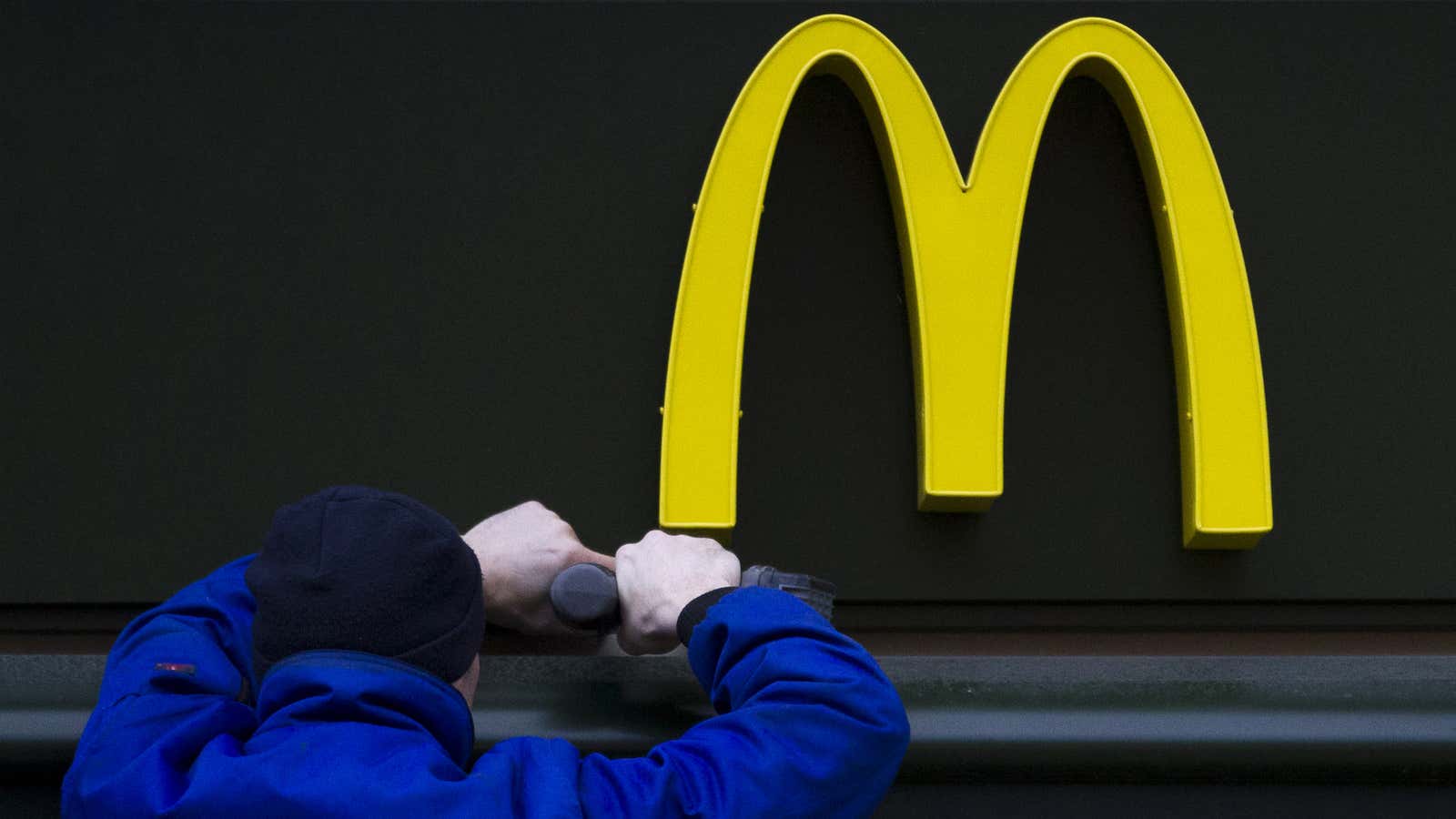Germany’s famously frugal consumers are giving McDonald’s fits.
The fast food behemoth’s operations in Europe’s largest economy were a dog during the first quarter. And a root cause of sluggish sales in Deutschland seems to disarmingly simple: McDonald’s took away Germany’s €1 cheeseburger. And Germany was not happy about it.
The company made the move back in November of 2012, after having held the price of a McDonald’s cheeseburger at €1 for nearly a decade. German customers, the chain’s Europe president told investors at a meeting late last year, “certainly punished us in a very severe way.”
McDonald’s has been struggling to regain the trust of German customers ever since. In a meeting with analysts May 16, McDonald’s executives explained that they saw an immediate drop in the German customers that came in for the €1 cheeseburger, then added on more profitable items such as fries and drinks. McDonald’s has sought to entice these customers back with other promotions, to no avail. “I would tell you that nothing has resonated as well as the €1 cheeseburger,” said Doug Goare, president of the company’s Europe division.
The challenge for McDonald’s in Germany speaks to the broader difficulties facing global corporations as they try to fine-tune consumer offerings across borders and cultures. The €1 cheeseburger fiasco has reinforced a core lesson in dealing with German customers.
“The German consumer tends to be very frugal,” Goare told analysts in the May 16 meeting. “And I would say they don’t have the same appetite for great-tasting food—I’ll get in trouble saying this—that the French have, okay? Food is a staple. And so there is a tremendous attention to value for the money.”
